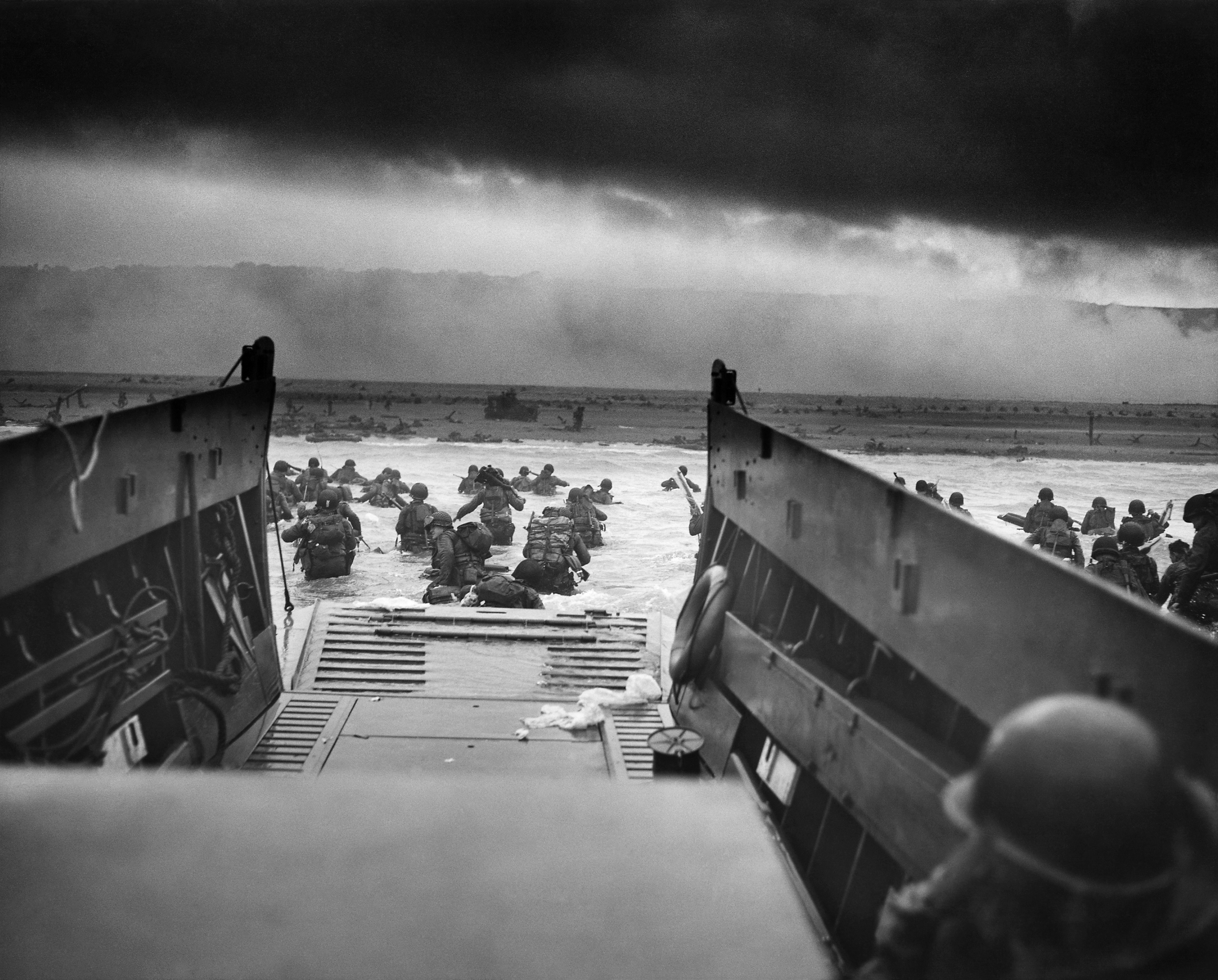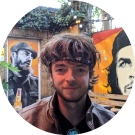We use cookies to make your experience better. To comply with the e-Privacy rules, we need to ask for your consent to use non-essential cookies (such as analytics and marketing). You can allow or decline these cookies. Essential cookies (for things like basket and checkout) will always be used. For more details, please see our Privacy Policy.
Socialists at Normandy: The Radical Story of the D-Day Landings

Famous as a military event of great strategic ambition, D-Day is also a landmark in the story of Europe's radical past
Today, 6th June, marks the eightieth anniversary of the D-Day landings in Normandy.
After four years of Nazi occupation, exploitation, and genocide, Allied land forces regained a foothold in northern Europe.
The human cost of the operation was high. There were over 10,000 Allied casualties on 6 June, and thousands of French civilians were killed in the fighting.
But the D-Day operation opened the way to the liberation of Europe from Nazism.
The students at the University of Munich exemplified the struggle against Nazism as a radical fight against fascism and genocide
With the Soviet Red Army advancing westward towards Germany, and Allied armies pushing forward in Italy and now France, too, the Nazi regime and empire would be overthrown within a year.
In itself, therefore, the Allied invasion of Normandy had a progressive element – the objective of defeating a genocidal, fascist regime in the name of national self-determination, human rights and dignity.
The social composition of the Allied armies was also popular in nature.
Rather than career soldiers, most of the service personnel – from the United States, Britain, and Canada, and from occupied countries including France, Poland, and the Netherlands – were volunteers, recently enlisted from civilian life.
But some actors in the D-Day story were especially passionate about the radical, liberatory politics behind what they were fighting for in Normandy.
We often think of the left's post-war consensus, exemplified by Labour's National Health Service - but the left also played a central role in winning the war against fascism
See the Labour's Health Service tea towel
One group that stood out were the Spanish soldiers of the 9th Company of the Régiment de marche du Tchad, a part of the Free French 2nd Armoured Division.
Spanish soldiers in the Allied army? Wasn’t Franco on Hitler’s side?
He was. But these men weren’t Francoists – they were the exact opposite.
The soldiers of the 9th Company – La Nueve (The Ninth) – were Spanish exiles who had fought to save democracy in Spain from Franco’s fascist rebellion during the late 1930s, and then had to leave their country in order to avoid capture and execution after the Republicans were defeated in 1939.
These Spanish troops were ideologically committed to the war against the far right on an international scale. They included communists, socialists, and anarchists, all of them anti-fascist to the core.
For La Nueve, World War 2 was a continuation of the Spanish Civil War – a global clash between the forces of fascism, on the one side, and democracy, on the other.
Our Help Spain tea towel is based on a poster produced by The Artists International Association in Britain to encourage recruitment in the fight against fascism
These Spanish anti-fascists had fought in the original defence of France against Hitler’s invasion in 1940, and then they fought in the Allied North Africa campaign during 1942-3.
In 1943, they became part of the Free French 2nd Armoured Division.
La Nueve painted their tanks and other vehicles with the flag of the defeated Spanish Republic, and named them after iconic Republican military campaigns against Franco – “Ebro”, “Brunete”, “Guadalajara.”
One half-track truck was called “Nous Voilà” – French for “Here we are” – to announce that Spanish anti-fascists were still alive in Europe, and still fighting for the cause of liberation.
In the Normandy campaign, La Nueve landed on Utah Beach with the rest of their division between 31 July and 1 August, after the infantry had cleared the beaches on D-Day.
From there, the unit fought against Waffen-SS soldiers as part of the divisional vanguard at Écouché in August.
The political commitment of La Nueve to the Allied cause in northern France was constantly on display in acts of wartime courage.
On 14 August, one mortar group of Spanish anarchists volunteered to raid 3 kilometres behind the German lines, where they freed a number of American POWs and took over 100 Nazi prisoners.
And on 23 August, it was La Nueve which spearheaded the rush by the wider Free French forces to get to Paris in time to support the uprising launched there by the French Resistance.
At 8am on 24 August 1944, it was the left-wing Spanish volunteers of La Nueve who, driving through the Porte d’Italie, began the Allied liberation of Paris – the victorious culmination of the campaign launched on D-Day.
D-Day was a crucial event in the course of human liberation, and many of the people involved were fully aware of that fact.
Famous as a military event for its logistical scale and amphibious ambition, D-Day should be remembered as a landmark in radical history too, defined by anti-fascist zeal and the hope for a better world.






